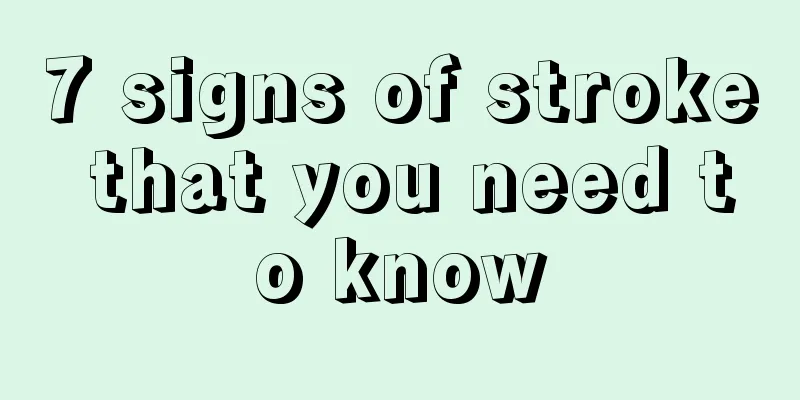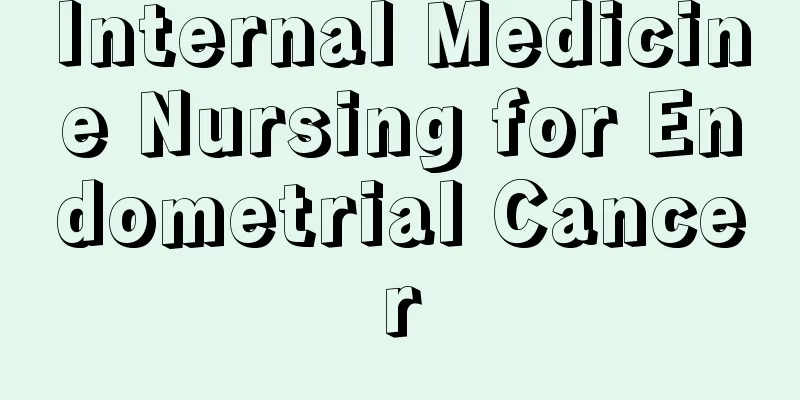7 signs of stroke that you need to know

|
Strokes are becoming more and more common among middle-aged and elderly people. Once a stroke occurs, it will affect daily life and in severe cases, the person will be unable to take care of themselves. In fact, there are some precursors to a stroke, such as sudden blackening of the eyes, slurred speech, and drowsiness. 1. Limb numbness - Middle-aged and elderly people may experience abnormal sensation of limb numbness. In addition to cervical spondylosis and diabetes, if they are accompanied by symptoms such as headache, dizziness, heavy head and light feet, swollen tongue, or have a history of hypertension, hyperlipidemia, diabetes or cerebral arteriosclerosis, they should pay more attention and be alert to the occurrence of stroke, sudden onset or unilateral limb weakness, unstable standing, and rapid relief followed by another attack, so be careful. 2. Sudden blacking of eyes - The most common sign of stroke in middle-aged and elderly people is sudden blacking of one eye and the inability to see anything, which returns to normal after a few seconds or tens of seconds. This is medically called monocular amaurosis, and is caused by retinal ischemia caused by cerebral ischemia. It is another signal of stroke, and recurrent episodes of dizziness, vomiting, narrowed visual field or double vision may occur. The most common sign of stroke in middle-aged and elderly people is sudden blackening of one eye 3. Unexplained falls in middle-aged and elderly people - due to cerebral vascular sclerosis, cerebral ischemia and motor nerve failure may occur, which may cause ataxia and balance disorders, making it easy to fall, which is also a precursor symptom of stroke. 4. Slurred speech - When the brain is not supplied with enough blood, the nerves that cause the body's motor functions malfunction. One of the common symptoms is sudden difficulty speaking or unclear speech, or even the inability to speak. However, the duration is short, no longer than 24 hours, and it should be taken seriously. Other unexplained crooked mouth, slurred speech, or tilted tongue should also be noted. 5. Constant yawning - If you yawn continuously without any reason such as fatigue or lack of sleep, it may be due to cerebral arteriosclerosis and ischemia, which causes chronic ischemia and hypoxia of brain tissue and is a precursor to stroke. 6. Mental changes - such as drowsiness. If middle-aged and elderly people experience unexplained drowsiness, they should pay close attention, as it may be a precursor to ischemic stroke. Changes in mental state and unusual personality, such as becoming taciturn, talkative, or irritable, or temporary intellectual decline, are all related to cerebral ischemia and may be precursors to stroke. 7. Nosebleeds - Symptoms of nosebleeds in middle-aged and elderly people may be an alarm for hypertensive patients who are about to have a stroke. After medical observation and excluding trauma and inflammatory factors, hypertensive patients with repeated nosebleeds may suffer from cerebral hemorrhage. Many nosebleeds are caused by unstable blood pressure, which will increase the chance of stroke if not prevented. |
>>: Treatment of sequelae of cerebral stroke, good recovery with Chinese medicine
Recommend
What should I do if I have a hard, painful pimple?
Some people like to squeeze pimples on their face...
Common peroneal nerve injury, scientific treatment is crucial
Damage to the common peroneal nerve can make peop...
Treatment and diagnosis of ovarian tumors
Ovarian tumor is a common gynecological tumor dis...
What to do if your white leather bag turns yellow
White bags look good, but they turn yellow easily...
There is a black mole on the back of the neck
Moles are the accumulation of melanin. This accum...
What kind of fungus is good fungus_
Fungus is a non-toxic food ingredient with many b...
Will having tongue cancer shorten your life span?
We know that there are many patients suffering fr...
Can salt water really reduce inflammation?
Salt is a common seasoning in our lives, and it i...
What is the reason for liver pain from staying up late
Staying up late will have an impact on the liver,...
What is the reason for excessive sweating on the back?
Generally speaking, sweating in summer is normal,...
Why does drinking milk on an empty stomach cause stomach pain in the morning?
Milk is a drink that is deeply loved by people in...
Is it okay to drink salt water on an empty stomach when you wake up in the morning?
In life, many people have the habit of drinking s...
How many lumbar vertebrae are there
In fact, our lumbar vertebrae are very similar to...
What are the causes of lower back pain in the morning
Some people find that their waist is particularly...
Clinical manifestations of phrenic nerve injury
Phrenic nerve injury is relatively serious and us...









